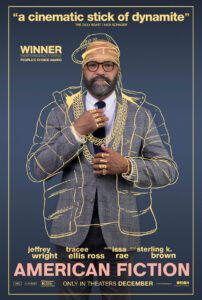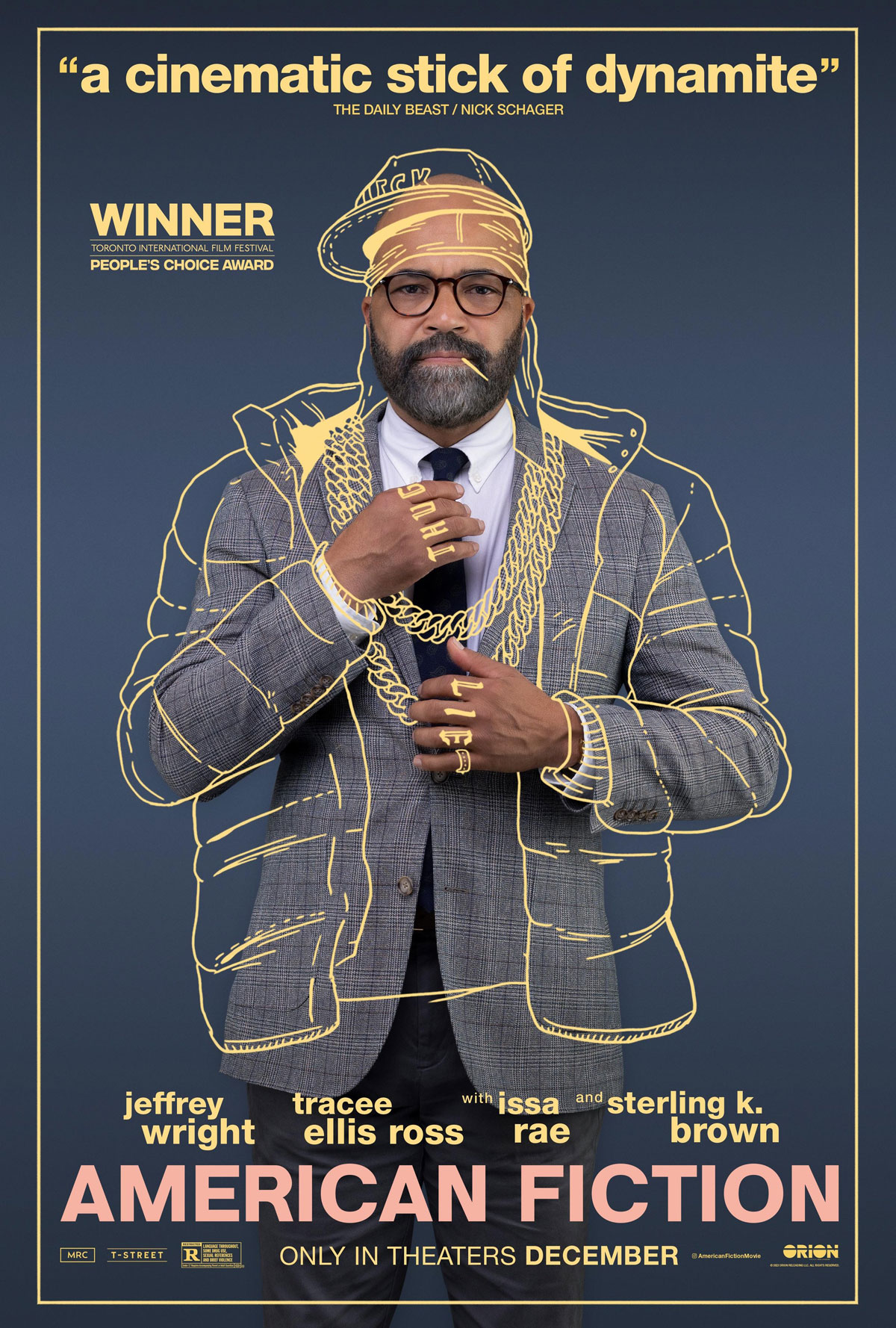
Director: Cord Jefferson
Release Year: 2023
Runtime: 1h 57min
I’m wondering if the people who do coverage for scripts ever get sick of reading shit about writers? There are multitudes of books written about writers. And almost as many movies. I know they say write what you know, but this kind of wankery — while widespread — is still wankery. Books about writing books. Movies about making movies. Movies about writing books. American Fiction definitely fits that bill. And then it throws on top of it that late-nineties satire that was all the rage in the Wag the Dog days. But satire that isn’t subtle or subversive or even particularly timely. More absurdist, I guess. But not that absurd. I’m not a master of the English language, but I think the adjective I’m searching for is trite. Not tight. Trite.
The writer/director of this movie, Cord Jefferson, has an impressive writing resume on a bunch of stuff I actually really like. Which includes everything from The Good Place to Master of None to the awesome series, Watchmen. And the dialogue in the movie feels very buttoned-up and very professional. Even the idea of the film and the general narrative is well constructed and makes sense. It just ultimately felt kind of overworked. Or underworked. I’m honestly not sure. It felt surface. The investigation and commentary on what amounts to a mixture of consumer ignorance, white guilt, bandwagonism and the publishing industrial complex all couched in what is basically a farce kind of took the edge off of what could have been a more searing indictment of the very thing Jefferson was looking to bring to bear. Or maybe he was just trying to tell an updated version of Hollywood Shuffle. And the intention was to make something lighter, more commercial and with less sharp elbows. Something to make people think and laugh, but also not alienate. I suppose that is one approach.
This, all from the mouth of Mr. Hipster, white middle-class guy with not a worry in the world. So, grain of salt. But there was just something I was looking for here to hit a little harder, make me think a little deeper. Just a little. And, look, the writing was good. The actors — especially Jeffrey Wright — were great. The gay awakening plotline with the brother, Cliff (Sterling K. Brown), was a little WTF-y at times, and honestly felt a little tacked on, but I’m sure there is something there that I’m missing. And I actually did enjoy the film overall. I just feel it could have been better if it felt just a little more literary and less like a Hollywood movie. Which makes total sense when you realize this is based — and by the synopsis, very closely — to a 2001 novel entitled Erasure. Because of course it was originally a writer writing about a struggling writer. A concept as old as time. But also in that synopsis I can see where Jefferson changed the movie to make it more of a movie. More of an entertainment. Because that’s what movies are. Whereas books can be more of a meditation. More of a critical look into the heart of a matter. Something that’s tough to do in two hours. Especially when you’re ostensibly making a comedy out of it. You gotta have a smile every ten pages or so. Someone needs to do something physical for a laugh every fifteen.
But even more movie-like is the ending. And this is where the film gets a bit dicey. You need an ending that isn’t just a shrug. Our main guy, Monk (Wright), has discovered that the harder he tries to make a goof out of his “black” novel that he actually wrote as a goof to prove that pandering is bad, the more the book-buyers and book-buying audience want it. So much so that he ends up with a prize-winning novel and a movie deal. Again, despite his attempts to sour everyone on the thing by making it stereotypically over-the-top and renaming the thing Fuck. Yes, just Fuck. So how do you end a tale where your character has achieved all of his hopes and dreams on the back of a goof? You fuck with narrative style, of course! Yes, you take this film that has been a pretty straight-forward narrative style and you — as a first-time director — decide to do the false ending thing. And then you take that feint and you do it again. Because you’ve said all you need to say at the end and the only way out of it is to use what amounts to a trickery mechanism to “voila!” the thing. And, no, I’m not opposed to filmic devices like this, but it feels a little disingenuous when there is no indication in the rest of the film it’s going to be that kind of film. That said, I didn’t hate it. It just felt a bit abrupt in what amounts to a pretty linear story to that point.
Despite everything I’ve said here, I think this is definitely a movie worth seeing. My complaint about it lacking depth doesn’t mean it didn’t make me think at all. Just not enough. I also found the unsubtle, pretty stereotypical Adam Brody producer character a little much. And weirdly ironic in a movie about stereotyping. Although perhaps that’s on purpose? I don’t know. Getting back on topic, I was entertained. Honestly, I think Wright’s performance is what stole the show. He’s kind of a singular actor. His hang-dog face and something about the pacing of his speech and quietness of his movements kind of demand your attention. And then when he does bust out with a funny line or react physically in an uncontrolled way, it’s super-impactful. You believe his intellectualism. You believe his frustration and exasperation. But he also feels like a masterful stage actor delivering lines on a page. It’s confounding how he pulls it off, this actorly unreality he puts forth while also feeling like a real person in a real situation. That’s real acting, I guess.


